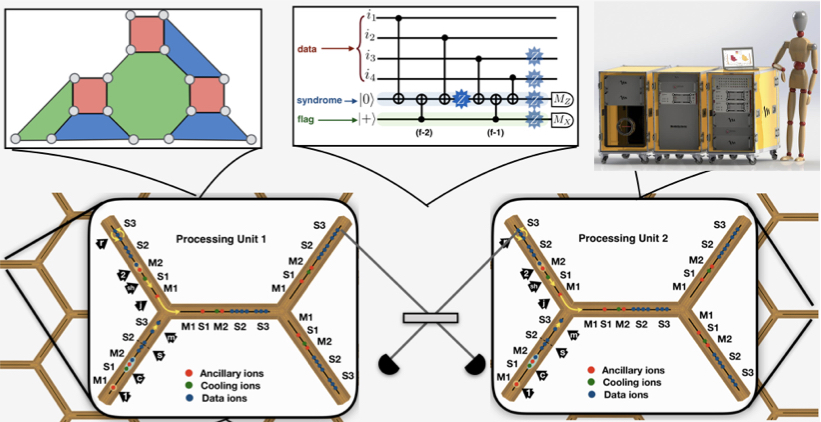Advanced Quantum Computing with Trapped Ions

Ion-trap quantum information processors are one of the leading platforms to realise scalable quantum computers. Here, quantum information is encoded in meta-stable electronic states of electromagnetically trapped ions, which can be manipulated with high precision using laser fields to implement single- and multi-qubit gate operations. The overall goal of this project is to develop and exploit a robust, compact ion-trap quantum computing demonstrator with up to 50 qubits, based on scalable quantum hardware and industry standards.
Besides our theory group at Aachen and Jülich, the project involves leading academic experimental and theoretical teams (Innsbruck University, Mainz University, ETH Zurich, Swansea University, Oxford University) who join forces with commercial leaders in the field of laser technology (TOPTICA Photonics AG), optical design (Fraunhofer Gesellschaft, IOF), and computer architectures (Bull SAS) to realize the first ion-trap quantum computer that will be able to tackle problems beyond the capabilities of classical computers. Specifically, on the theory side, we are particularly interested in developing realistic protocols for scalable topological quantum error correction and fault-tolerant quantum computing, and in investigating quantum algorithms which might enable the demonstration of a quantum advantage over their classical counterparts in medium-scale quantum processors.
As a recent highlight, we developed and experimentally implemented with colleagues at Innsbruck the first fault-tolerant universal logical gate set on two logical qubits [1]. Furthermore, we explored a connection and established a new mapping of quantum error correcting codes with noisy circuit elements onto classical disordered spin models: this new technique allows one to investigate the fundamental error thresholds of practical quantum error correcting codes [2].
[2] Fundamental thresholds of realistic quantum error correction circuits from classical spin models, D. Vodola, M. Rispler, S. Kim, M. Müller, Quantum 6, 618 (2022)
[1] Demonstration of fault-tolerant universal quantum gate operations, L. Postler, S. Heußen, I. Pogorelov, M. Rispler, T. Feldker, M. Meth, C. D. Marciniak, R. Stricker, M. Ringbauer, R. Blatt, P. Schindler, M. Müller, T. Monz, arXiv:2111.12654 (2021)

